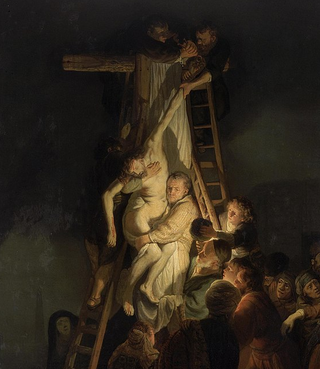Coronavirus Disease 2019
Rediscovering Easter Amid Pandemic
How religions reveal life's preciousness in its fragility.
Posted April 9, 2020
For some, the novel coronavirus pandemic is an all-too-real reminder of life’s fragility, something they would prefer never to contemplate. Livelihoods, relationships, health, and even life itself seem suddenly precarious, and many long to get back to patterns of life that have been upended. But some of the world’s religions have seen matters differently.
From a spiritual point of view, if life is truly fragile, then the sooner people face up to its fragility, the better. To fail to acknowledge it and pretend that human beings can insulate themselves from suffering and death is to live a lie. Moreover, many religions such as Judaism, Christianity, Islam, and Buddhism see in life’s fragility humanity’s greatest reminder of its true preciousness.
Judaism
Jews are called to recognize the fragility of life through the holiday of Sukkot, also known as the Feast of Tabernacles. The name refers to the temporary, somewhat flimsy dwellings where farmers would reside during harvest, recalling the fragile dwellings of the Israelites during their 40 years of wandering in the desert after the exodus from Egyptian slavery.
By taking meals and even sleeping in such a dwelling, Jews are reminded of the transience of all life. The dwelling is temporary, the harvest is temporary, and so, too, is each human life. In calling worshipers to inhabit something so ephemeral, the holiday fosters an enhanced awareness of the impermanence things many human beings become preoccupied with, as opposed to the truly enduring and precious.
The sentiment is perhaps best captured in Psalm 90, “Teach us to number our days, that we might apply our hearts to wisdom.” When people begin to recognize that inhabitants of wealthy nations live on average 27,375 days or 657,000 hours, the great preciousness of each day and each hour becomes more apparent. The clock is ticking, so make each moment count!
Christianity
The traditions surrounding the holiest of Christian holidays, Easter, embody a similar message. Commemorating the resurrection of Jesus, the Easter holiday would not be possible had Christ not first died on the cross. The crosses adoring much Christian iconography from necklaces to church steeples serve in part as a reminder of the nearness of death.

Even the incorporation of the pagan symbol of the egg into Easter tradition serves as a reminder of this lesson. Eggs are notoriously fragile, easily cracked and broken after even a short fall. Yet within them lies new life, and for that new life to emerge, the shell containing it must be fractured from the inside. To do its job, the eggshell must perish.
The Easter message is well captured in Jesus’ parable in John 12 about the grain of wheat: “Unless a grain of wheat falls to the ground and dies, it remains only a single seed. But if it dies, it produces many seeds.” If people do not learn to see the vanity of a life devoted to acquisition and domination, they will never be able to recognize what is truly enduring and precious.
Islam
Islam contains many reminders of time’s passage. The life of human beings is sometimes likened to the clouds, which spring into being and pass away continually. No matter how long a person might live—even a hundred years or more—the life of a human being is fleeting, and death awaits everyone, no matter what a person has amounted to in life.
Islam teaches that each day is a new creation, an opportunity to answer the call of righteousness. And each day serves as a witness of what each person does and becomes. Not a day, an hour, or even a moment can ever be recovered or undone. As such, it is far more valuable than any gold or pearls. It is the most precious resource, yet granted in equal measure to every human being.
The Hadith describes the day of judgment of each human life in these terms: “The feet of the slave of Allah shall not move until he is asked about five things: about his life and what he did with it; about his knowledge and what he did with it; about his wealth and how he earned it and what he spent it on; and about his body and for what did he wear it out.” In service to what will each person wear out?
Buddhism
Buddhism, too, cultivates an awareness of the impermanence of things. Like Dickens’ Ebeneezer Scrooge, who is finally moved to transform his life only when he visit his own grave, Buddhist monks have often visited cemeteries, as a means of learning death’s lessons. The Buddha is said to have described death as “the greatest of all teachers.”
Seeing the fragility of life firsthand serves several purposes. First, it reminds every person of the evanescence of their own life. Second, it awakens an awareness of the preciousness of each moment and the imperative to make the most of it. Third, it can stir a sense of compassion for the sufferings of others, perhaps most of all those just awakening to an awareness of life’s fragility.
From this perspective, one of the greatest misconceptions a person can harbor is this: there is always more time. To do so is to cheapen the present moment. Instead, a Buddhist teaching advises, “Do not pursue the past. Do not lose yourself in the future ... [Look instead] at life as it is in the very here and now. ... To wait till tomorrow is too late.”
Celebrating Easter Amidst Pandemic
These and other religious traditions do not urge human beings to court death. They would not countenance drawing people together for worship services that might accelerate the transmission of the novel coronavirus. But each of them does, in its own way, call human beings to contemplate life’s fragility, and in fully recognizing it, to embrace the preciousness of each day.




